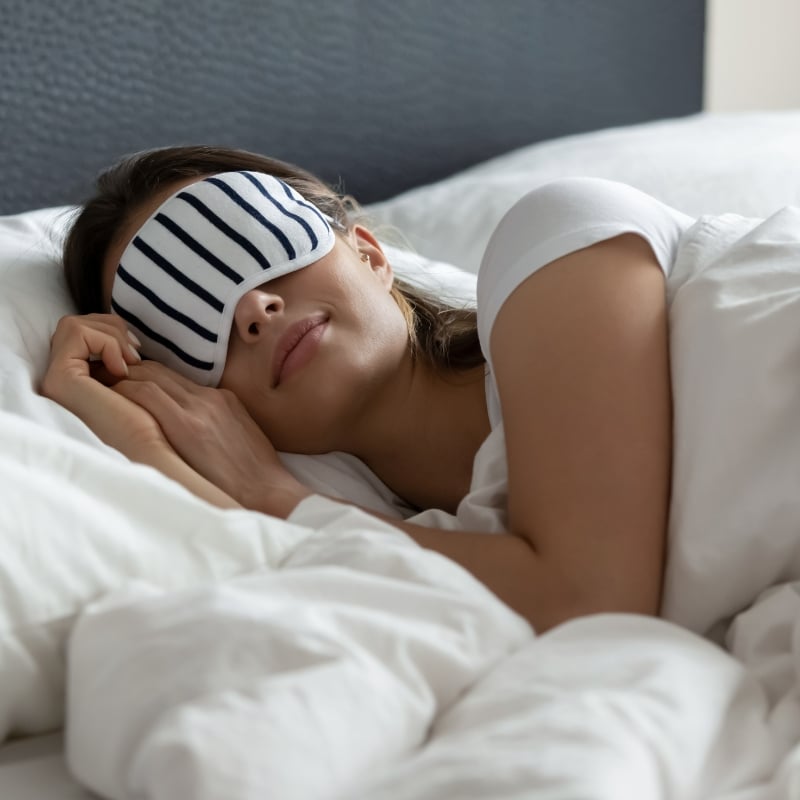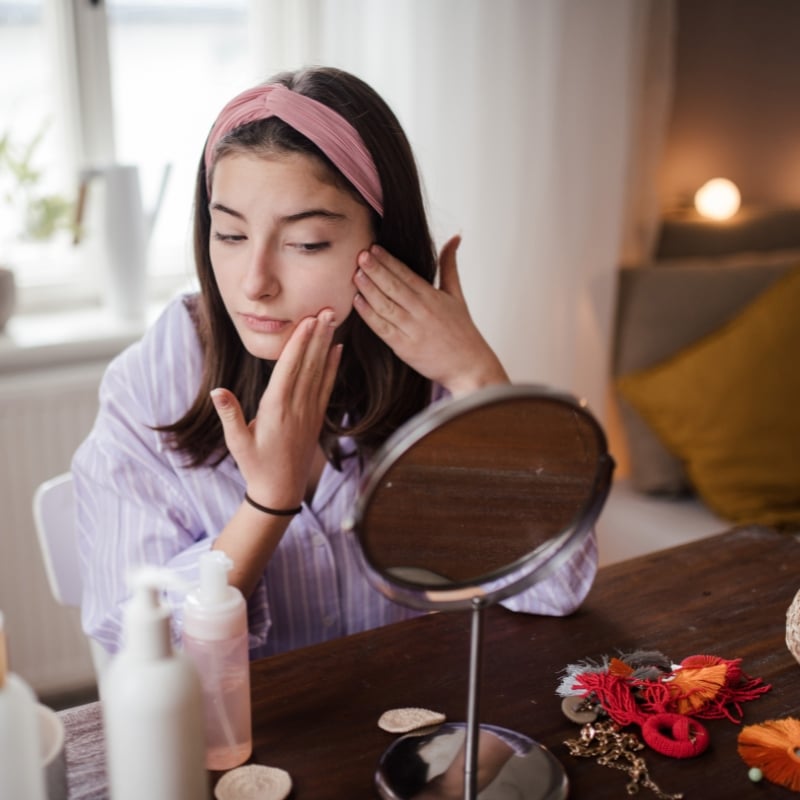Depression and sleep are closely linked, and understanding this relationship can unlock opportunities for better mental health. In Sacramento, Roseville, and Folsom, Zeam Health & Wellness is committed to helping individuals improve their mental health and sleep quality through evidence-based approaches.
Let us dive into the connection between sleep and depression and explore how improving your sleep can uplift your mood.
How Sleep and Depression Are Connected
Sleep disturbances are deeply linked with depression, forming a bi-directional relationship. On one hand, chronic sleep issues such as insomnia and fragmented sleep increase the risk of developing depression. On the other hand, depression itself disrupts sleep patterns, creating a vicious cycle.
For example, research summarized in Dialogues in Clinical Neuroscience found that up to 75% of individuals with depression report symptoms of insomnia, while 40% of younger patients experience hypersomnia.
Conversely, depression can disrupt sleep by shortening restorative phases such as slow-wave sleep and altering circadian rhythms. A 2006 study by Rosen et al. observed medical interns over the course of one year and found that chronic sleep deprivation led to increased depressive symptoms and burnout.
What Happens to the Brain During Poor Sleep?
When sleep is disrupted, the brain’s neurotransmitter systems, particularly serotonin, are thrown off balance. Serotonin plays a critical role in regulating mood and sleep cycles. Chronic sleep deprivation has been shown in animal studies to alter serotonin receptor sensitivity and disrupt stress-response systems in the brain, mirroring the biological changes observed in major depression.
Moreover, obstructive sleep apnea (OSA), a condition causing frequent awakenings and oxygen deprivation during sleep, has been strongly linked to depression. Peppard et al. (2006) found a dose-response relationship, meaning that the severity of sleep apnea directly correlated with the intensity of depressive symptoms.
Sleep Architecture and Its Role in Depression
Sleep architecture refers to the distinct stages of sleep, including light sleep, deep slow-wave sleep, and rapid eye movement (REM) sleep. In depressed individuals, this architecture often becomes disorganized. People with depression experience shortened REM latency, reduced slow-wave sleep, and increased wakefulness throughout the night. These disruptions not only impair sleep quality but also contribute to the emotional exhaustion many depressed individuals feel during the day.
Interestingly, studies have also noted that sleep deprivation can temporarily improve mood in some individuals with depression. This paradoxical effect occurs because staying awake disrupts negative thought patterns linked to depression. However, these benefits are short-lived and often result in worsened symptoms once regular sleep resumes.
Chronic vs. Acute Sleep Deprivation
Acute sleep deprivation, such as pulling an all-nighter, can result in immediate mood improvements for some individuals. A 1990 study by Wu and Bunney found that a single night of sleep deprivation could have an antidepressant effect, although it also increased impulsivity and daytime drowsiness. This phenomenon suggests that sleep and mood are deeply interconnected through brain mechanisms.
On the other hand, chronic sleep deprivation has far-reaching consequences. It disrupts circadian rhythms, reduces cognitive flexibility, and heightens emotional sensitivity.
In a cross-sectional study conducted in Saudi Arabia, medical trainees experiencing chronic sleep deprivation reported higher depressive scores on the Beck Depression Inventory compared to those with adequate sleep. Chronic deprivation amplifies the risk of depression, showing the importance of consistent, high-quality rest.
The Importance of Sleep Hygiene
Improving sleep hygiene is a simple yet effective way to combat sleep disturbances and improve mood. Sleep hygiene refers to the habits and environmental factors that contribute to good sleep. Here are actionable tips to enhance your sleep hygiene:
- Maintain a Regular Sleep Routine: Set a consistent time for going to bed and waking up each day, including weekends. This practice helps synchronize your body’s natural sleep-wake cycle.
- Create a Relaxing Bedtime Routine: Engage in calming activities such as reading or practicing mindfulness before bed. Avoid stimulating activities like watching TV or using your phone.
- Optimize Your Sleep Environment: Ensure your bedroom is quiet, dark, and kept at a comfortable, cool temperature. Consider blackout curtains or white noise machines if needed.
- Limit Caffeine and Alcohol: Both can disrupt sleep quality. Avoid consuming these substances at least six hours before bedtime.
- Get Natural Light Exposure: Spending time outdoors during the day helps align your circadian rhythm, promoting better sleep at night.
Mindfulness and Sleep
Mindfulness techniques can reduce stress and promote better sleep. Practices such as deep breathing, progressive muscle relaxation, and meditation help calm the mind, making it easier to fall asleep and stay asleep. A growing body of research supports the role of mindfulness in reducing insomnia and depression symptoms. In Folsom, Zeam Health & Wellness offers mindfulness-based interventions tailored to individual needs.
How Better Sleep Can Improve Mood
Better sleep enhances mood by restoring emotional resilience and improving cognitive function. A Johns Hopkins study found that interrupted sleep reduced positive moods by 31% the following day, emphasizing how vital uninterrupted rest is for emotional regulation. Additionally, quality sleep helps rebuild the brain’s ability to manage stress, leading to greater overall well-being.
Treatments for Sleep and Depression
Addressing both sleep and depression is crucial for long-term improvement. Treatments often include a combination of therapies:
- Cognitive Behavioral Therapy for Insomnia (CBT-I): This evidence-based approach helps reframe negative thought patterns related to sleep.
- Medication: Antidepressants and sleep aids may be prescribed to manage symptoms, though careful monitoring is required to avoid dependency.
- Lifestyle Adjustments: Regular exercise, balanced nutrition, and reduced screen time contribute to better sleep and mood stability.
At Zeam Health & Wellness in Sacramento, Roseville, and Folsom, our team provides personalized mental health services that integrate these approaches for comprehensive care.
Restoring Sleep, Restoring Balance
Sleep and depression share a powerful connection, but the good news is that improving your sleep can pave the way to better mental health. By adopting healthy sleep habits, addressing sleep disorders, and seeking professional help when needed, you can take meaningful steps toward a happier, healthier life.
If you or a loved one is struggling with sleep or mood issues, we are here to help. Contact Zeam Health & Wellness today for compassionate support in Sacramento, Roseville, or Folsom. Together, let us take the first step toward restoring your sleep balance and improving your quality of life.




